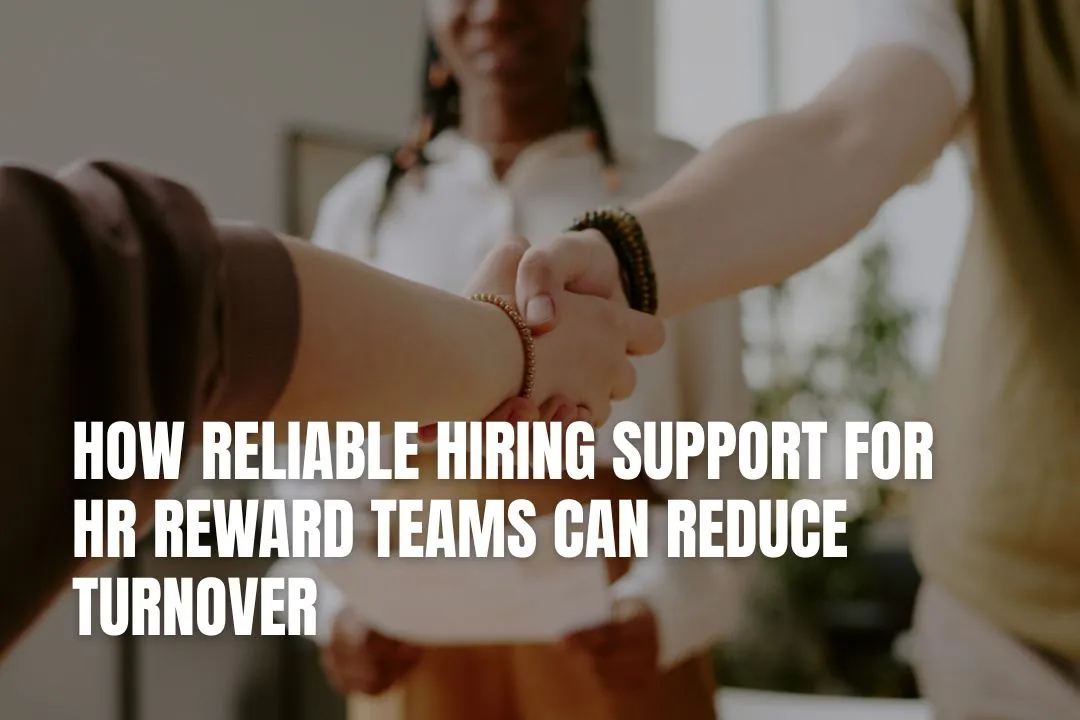
Editorial Disclaimer
This content is published for general information and editorial purposes only. It does not constitute financial, investment, or legal advice, nor should it be relied upon as such. Any mention of companies, platforms, or services does not imply endorsement or recommendation. We are not affiliated with, nor do we accept responsibility for, any third-party entities referenced. Financial markets and company circumstances can change rapidly. Readers should perform their own independent research and seek professional advice before making any financial or investment decisions.
In today’s competitive job market, the significance of effective hiring cannot be overstated, especially for HR reward teams. These teams are responsible for creating and managing compensation strategies that not only attract talent but also retain it. Consequently, the decision-making processes around hiring directly influence turnover rates. Relying on robust hiring support systems can significantly enhance the efficacy of HR reward teams, leading to improved retention and long-term organisational success.
HR reward teams play an essential role within organisations. They are tasked with balancing employee satisfaction and company sustainability through structured compensation plans. The complexities of their responsibilities often become more demanding as organisations seek to align their rewards with market standards, legal requirements, and internal equity.
One of the key challenges they face is sourcing talent that not only understands the intricacies of compensation but also fits well within the company culture. This is where hiring support becomes invaluable. By utilising reliable hiring partners, HR reward teams can focus on their core functions while ensuring they have qualified personnel to help drive their strategies.
Engaging with recruitment solutions for compensation roles provides numerous advantages. Firstly, these specialised services streamline the hiring process, which is crucial in environments where speed and precision matter. Recruitment specialists possess expertise in identifying candidates with the specific skills and backgrounds necessary for roles within HR reward teams. They employ advanced screening techniques and robust talent pools, making it easier for companies to find the right match.
Furthermore, working with these recruitment solutions means access to up-to-date labour market trends, insights into compensation benchmarks, and a thorough understanding of the skills in demand. All of this can inform your hiring strategy, ensuring your organisation is not only competitive but also attractive to top talent.
Understanding Turnover: The Hidden Costs
Before delving deeper into reducing turnover through reliable hiring, it's essential to understand what turnover truly costs an organisation. High turnover can lead to significant financial strains, including:
Reducing turnover, therefore, equates to saving resources that can be better allocated elsewhere, enhancing overall operational effectiveness.
While solid hiring practices are essential, retention strategies shouldn’t end once a position is filled. HR reward teams can take several proactive measures to enhance job satisfaction and decrease turnover rates.
It's essential for reward teams to ensure that compensation packages are attractive and competitive within the market. Regularly benchmarking against competitors can help in establishing salary structures that meet or exceed industry standards.
Optimising feedback loops, through regular performance reviews and one-on-one check-ins, can empower employees and give them a clear understanding of their value within the organisation. Providing continuous development opportunities can also motivate employees to stay longer, as they see a path for growth.
An inclusive and positive work environment plays a huge role in employee retention. HR reward teams should work closely with management to cultivate a culture where employees feel respected and valued, ultimately reducing the likelihood of turnover.
Leveraging HR analytics is increasingly becoming critical in making informed decisions about hiring and retention. Analysing turnover rates, employee feedback, and other metrics can uncover patterns that may inform changes in hiring strategies. For instance, if data shows high turnover among certain roles, it may indicate a need for better screening processes or adjustments to job descriptions.
Moreover, when recruiting, data can reveal ideal candidate profiles based on individuals who have previously succeeded in similar roles. This proactive approach allows HR reward teams to refine their selection criteria and refine their focus on what truly matters.
The intersection of effective hiring practices and robust retention strategies is where HR reward teams can truly shine. By investing in reliable recruitment solutions for compensation roles, organisations can streamline the hiring process and create a solid foundation for workforce stability. This kind of strategic approach not only reduces turnover rates but also fosters a culture of committed, enthusiastic employees who are less likely to pursue opportunities elsewhere.
In essence, tackling turnover is not merely a function of retaining existing staff but a holistic strategy that begins with careful hiring. By utilising hiring support, focusing on competitive compensation, and cultivating positive workplace cultures, HR reward teams can drive sustainable success and ultimately, long-lasting change within their organisations.
An HR reward team's main job is to design and manage compensation and benefits strategies. They work to attract top talent and retain existing employees by ensuring pay is competitive and fair, all while keeping the company's financial health in mind.
High turnover creates significant financial strain. You face direct costs from advertising and interviewing, plus indirect costs like lost productivity while a new hire gets up to speed and the potential for decreased morale among the staff who stay.
A specialised service, like the support offered by Robin Waite, has deep expertise in the HR field. They can identify candidates with the specific skills needed for complex reward roles, streamline your hiring process, and provide valuable insights into market trends and salary benchmarks.
To keep your team intact, focus on building a strong retention strategy. This includes offering competitive pay, providing clear paths for career development, giving regular and constructive feedback, and cultivating a positive and inclusive workplace culture.
By analysing HR data, you can uncover trends related to why people leave certain roles. This information allows you to adjust job descriptions, improve your screening process, and identify the key characteristics of employees who succeed and stay with your company long-term.